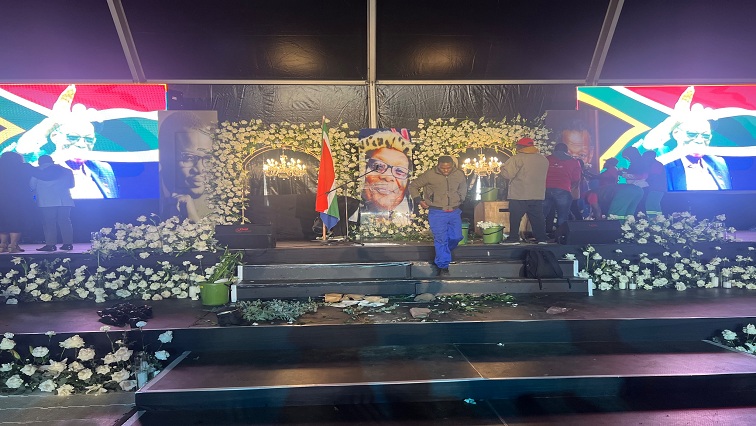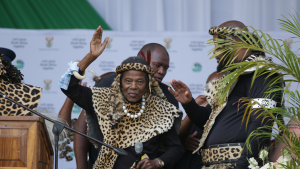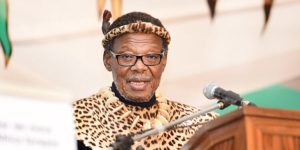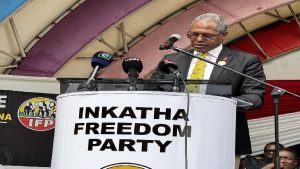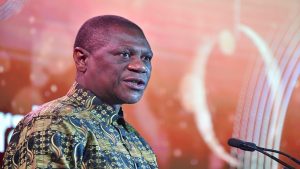Although they are currently living together, survivors of the political violence between the Inkatha Freedom Party (IFP) and African National Congress (ANC) say they still need psycho-social support.
The political violence of the late ’80s and early ’90s in the KwaZulu midlands, were also felt by the residents of Mpumalanga township, west of Durban. More than 2 000 people died in the violence that engulfed the area.
The death of Prince Mangosuthu Buthelezi evoked varied responses from South Africans. While some caution against whitewashing, the survivor’s wish is to stay clear of any violence.
Still bearing the emotional scars of the trauma, the people say politicians have forsaken them.
Mpumalanga township, outside the Durban metro, was a hotspot for political violence between ANC and IFP supporters in the 80’s and 90’s.
It was one of the first areas in KwaZulu-Natal to start peace talks and later seen as an award-winning initiative. More than a thousand people were killed in the area in heightened tensions before the 1994 elections.
The violence metted out in Mpumalanga township, forced many families to flee their homes.
More than 30 years have passed since the brutal killing of 70-year-old Khonzeni Mpulo’s, only son. To this day she still cries hysterically when she recalls the gruesome events.
She witnessed her son being shot, then hacked and set alight allegedly by ANC supporters, in his efforts to reach their home, safely.
Mpulo’s family left the area after three of their homes were destroyed in the violence.
Although peace has been restored in the area, Mpulo feels the survivors of the violence have been forgotten by politicians.
Khonzeni Mpulo says, “After everything has been done, we have not once received counselling or social workers. It’s all the same we forget and be trigger by the slightest thing. But because we’re still alive but we’re still have that emotional trauma. As you’re here with your machines not one of those in high positions care what happened to the war survivors just to see how we’re holding up.”
58-year-old Adelaide Nxumalo avoids watching the news and even films. Any gunshot brings flashbacks of the day in April 1990, when her ANC-aligned family was wiped out. Out of 13 family members, herself and younger nephew survived, each by hiding in a big cast iron pot.
Nxumalo says she doesn’t bear a grudge, as it was a war zone.
“As I’m saying my family was killed in the war between the ANC and IFP, they were killed by the IFP. All I can say is that uMntwana must rest in peace. Death is not a joyous thing but what I’m happy he died because he was sick and not killed by someone. My family was shot dead and set alight.”
But Nxumalo says they deserve support from government after paying such a high price. She is calling on those in power to compensate them.
Sabo Khomo says he was attending a peace talks meeting at an Inkosi’s house, when they were attacked. Sixteen people lost their lives on that faithful day. Khomo, now an Induna, says the peace talks took a while to bear fruit due to emotions running high amid the cycle of violence.
With the luxury of hindsight, Khoma says there could have been less bloodshed.
“Houses closed down. This place was a no-go area. it was difficult. Right now, we’re living in peace and people are free to go anywhere. uMntwana wakwaPhindangene used to preach peace and that we should talk things through even though we want freedom but we should not fight and solve things with violence. We are calling on government to erect a monument where these men died without considering which political party they were affiliated to.”
While working on the establishment of a museum to document the history of the area, ANC member Mduduzi Gumede says their former foes are family members today.
“Right now, we’re living in peace with Inkatha, we treat each other as brothers and sisters the only thing that we’re having now is crime violence that is scaring people.”
Some IFP supporters in the area asked for a memorial to be erected for the victims of political violence, as was done for the victims of the Christmas Day massacre in 1995 in Shobashobane in the south of the province.


